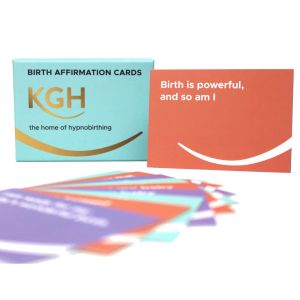As you move closer to when your baby will arrive, the conversation of induction of labour may well come up in your regular antenatal appointments. Hospitals have different protocols about when induction will be offered but often as you approach 40 weeks gestation, you may feel you are being pushed into booking an induction appointment. Even a membrane sweep is a form of induction.
There are clinical circumstances where induction may be necessary for the wellbeing of mother or child but routinely offering an induction due to the number of pregnancy weeks is not logical, especially if you are not 100% sure of your dates. The World Health Organisation’s definition of the natural length of a pregnancy is between 37-42 weeks.
Do you have all the information to make an informed decision?
When induction is first discussed, it is wise to be ready and to ask questions about whether it is in your best interest and the alternatives available. There are pros and cons to taking action, as there are pros and cons to not taking action.
Women often tell us they have been told the benefits of the induction and the risks of continuing the pregnancy. This is only half the information you need to make an informed choice. You need to make sure you also understand the risks of an induction and the benefits of continuing the pregnancy. The suggestion of any intervention should be accompanied with evidence and facts. As the parent, you have the choice to decline interventions – any kind of intervention can only be done with informed consent.
An induction of labour is a significant intervention and is a question on which you are very likely to have to make a choice. You will be in a better position to make that choice after you have done the KGH course as you will get good, evidence based information on the course. Many pregnant women will say that they do not want an induction and then, later on, they agree. Why?
What about a sweep?
You may think that having a sweep, a less medicalised induction, is a better option. It is true that it is a less medical procedure, but it has its own implications, and there are doubts about how successful it is and it may only reduce the length of pregnancy by a small amount. You need good information on all this, and we will help you.
Making decisions when stressed
You may feel you are put under extreme stress towards the end of your pregnancy because of the pressure to agree to an induction of labour. The suggestions as to why you should agree are various but you need good information before you can make this choice. One thing is for sure, when you are stressed, you produce the hormone adrenaline. When you produce adrenaline it inhibits the production of oxytocin. And oxytocin is the hormone needed to go into labour. Therefore this stress can in itself cause a longer pregnancy so the need for an induction becomes a self-fulfilling prophecy. On the course you will learn how to deal with the stress. All this is discussed on the KGH course, so you understand your options and the implications of your choices.
Further resources
We have a comprehensive induction of labour fact sheet that you can download from our hypnobirthing free resources page.
‘It is worth remembering that induction whether medical or non-medical is always an attempt to persuade your body to go into labour before your baby is ready to be born.’
This is a wonderful book that I would recommend to all women. Find it here.









